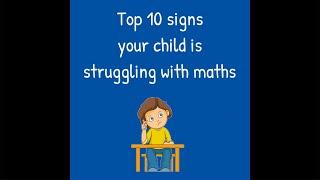Slideshow: Top Reasons Your Child Can't Sleep, Including You
Description
Slideshow: Top Reasons Your Child Can't Sleep, Including You
No. 1: She's Too Young!
Few babies sleep through the night right away. For the first two months, newborns sleep off and on at random times for 12 to 18 hours a day. Most babies sleep through the night by the time they're about 9 months old. Even then, "night" means just five to six hours in a row.
No. 2: You're the Sleep Aide
Rock a baby to sleep every night, and he can't learn to fall asleep on his own. Instead he cries to get what helps him -- you. Put him to bed when he's sleepy, but not sound asleep. He'll become a "self-soother" who learns to fall asleep on his own, even if he wakes up in the middle of the night.
No. 3: He's Over-Tired
Toddlers and preschoolers need 11 to 14 hours of sleep every 24 hours, including nighttime and naps. Routine is key, so set regular times for bed, waking up, napping, meals, and play.
No. 4: Separation Anxiety
It's normal for your child to go through this phase. Try not to encourage it with lots of talking, singing, rocking, or extra feedings. At around 6 months, you can help a baby to go back to sleep on her own. As long as she doesn't seem sick, speak softly and rub her back. Comfort her, but don't make it too rewarding by picking her up or feeding her. A nightlight may comfort toddlers who are afraid of the dark.
No. 5: No Bedtime Routine
Doing the same things each night before bed helps your child know it's time to sleep. Create a bedtime routine to wind down and relax. For instance, each night your child gets a bath, listens to you read them a story, has a snack, and then it's lights out. Do the same routine every night and always end in your child's room. It's best to start a routine early, by 4 months.
No. 6: Bedtime Stalling
Some kids delay bedtime. They make up reasons to stay up or ask for more stories, a drink, or a trip to the potty. Stick to the routine. Go into your child's room to respond. Be kind and firm. Make your visits shorter each time. Let your child know it's truly time for sleep.
No. 7: Not Enough Nap Time
If they don't nap enough during the day, young kids may have trouble falling asleep at night. Most babies need two or three naps a day. Toddlers need at least one nap. Most kids still take an after-lunch nap until age 5. If your child is cranky and sleepy, let her nap, as long as it's not too close to bedtime.
No. 8: Obstructive Sleep Apnea
It's rare, but some children can't sleep due to obstructive sleep apnea -- when the airways are blocked, often by enlarged tonsils and nasal tissues called adenoids. Kids with sleep apnea usually snore loudly, have labored breathing, and restless sleep. It affects about 1 in 100 kids and is most common from ages 3 to 7, when tonsils and adenoids are at their biggest. Treatment includes surgery or having the child wear a nose mask at night.
No. 9: Snoring
About 1 in 10 kids snore. They can snore for many reasons, including sleep apnea, seasonal allergies, stuffiness from a cold, or a deviated septum. If their sleep is OK, your pediatrician probably won't treat snoring. But see your pediatrician if your child isn't sleeping well because of snoring or breathing problems.
No. 10: Bad Dreams
Kids occasionally have bad dreams. That's normal, and most bad dreams are harmless. Soothe your child after bad dreams. Make sure he gets enough sleep and has a soothing bedtime routine. If bad dreams won't stop, mention it to your pediatrician.
No. 11: Walking While Asleep
Some children sleepwalk. When they're not fully awake they may walk, talk, sit up in bed, or do other things. Their eyes may be open, but they're not aware. Most kids outgrow this by their teens. Don't wake a child who sleepwalks. You may scare her. Gently guide her back to bed. Keep the area she may roam in safe: Lock doors and put up safety gates near steps.
No. 12: Allergies, Asthma, and More
Some health problems can keep kids from sleeping. Stuffy noses from allergies, colds, and asthma can make it hard to breathe. In babies, colic, acid reflux, earaches, or teething pain can also hamper sleep. Your pediatrician may be able to help.
No. 13: Drugs
Some cold and allergy medicines or ADHD drugs can affect a child's sleep. If drugs seem to be keeping your child up, talk to your pediatrician to see if changing the drug, dose, or timing might help. Never make those changes on your own.
No. 14: The Teen Body Clock
When a child becomes a teen, their sleep cycle changes. They become more alert in the evening and sleepier in the morning. Work with those changes. Let your teen do homework at night and sleep later if she can. Teens still need at least 8.5 hours of sleep.
No. 15: No Pacifier or Teddy Bear
Sometimes having a special object close by can help a young child fall asleep. Blankies or stuffed animals are among the top comfort objects. Pacifiers may please a baby's need to suck, even if they're breastfeeding. A white noise machine soothes their ears and hushes sounds.







![Tips to get a good night sleep [Problem Child in House/2020.05.18]](https://no-mar.com/uploads/thumbs/0fcee5378-1.jpg)













Comments